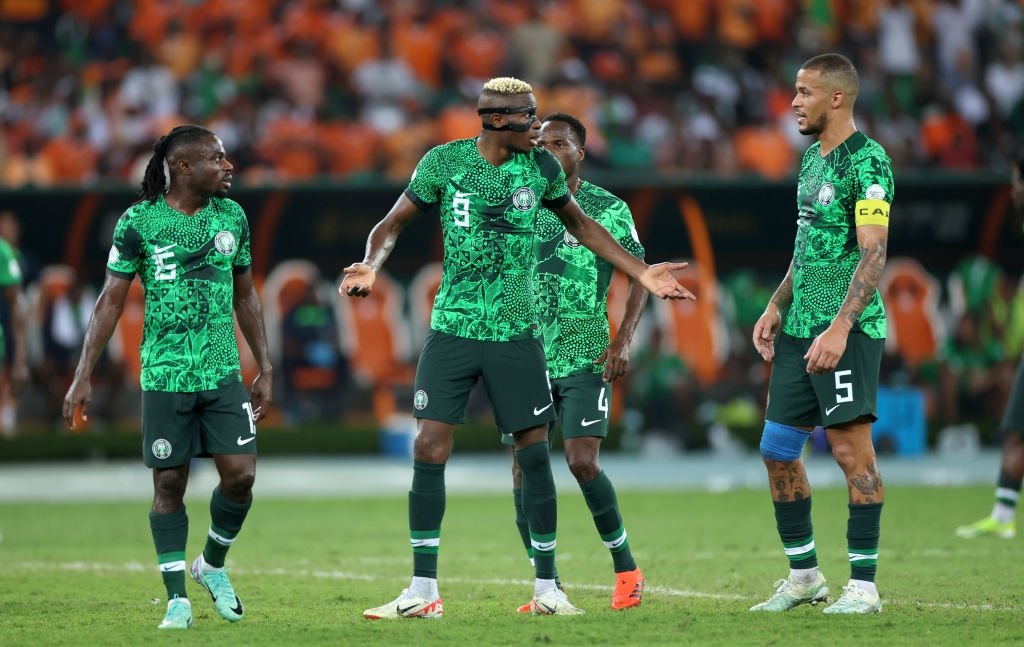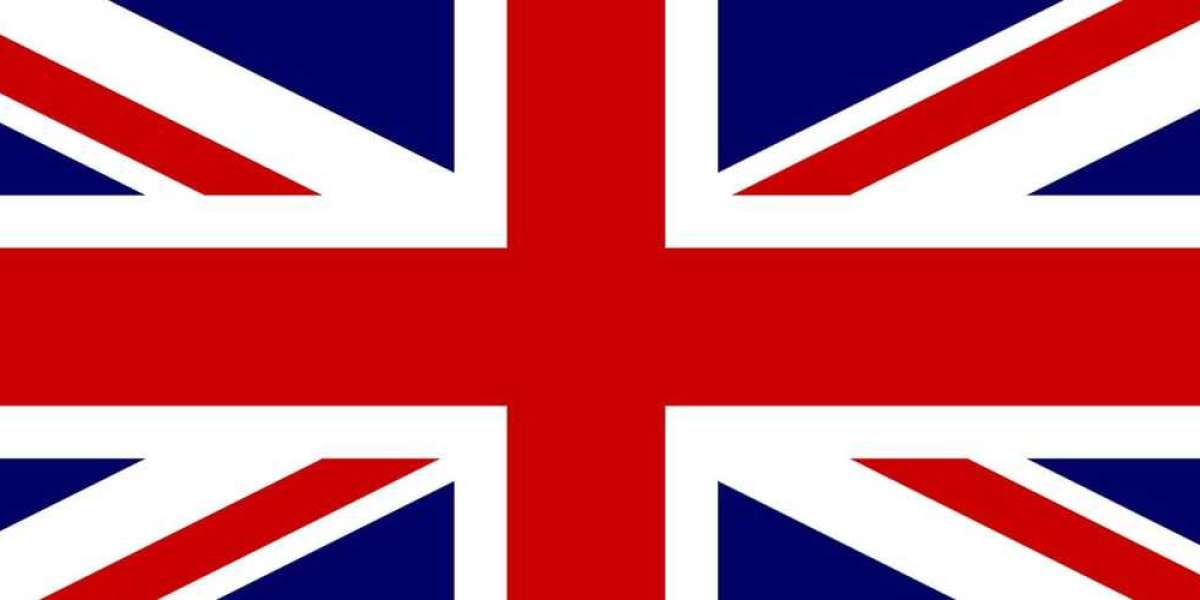
A massive 67% of Nigerians watch Football, which shows how much the sport affects Nigerian culture. Football's journey in Nigeria began over 100 years ago, forming the nation's sporting landscape.

Football in Nigeria dates back to the early 1900s. British colonisers brought the sport to the country in 1904. The very first documented football match took place that very same year, beginning Nigeria's rich footballing history.

By 1950, Football had actually ended up being Nigeria's nationwide video game. Its fast rise caused many clubs and associations forming in the early 1900s. This development boosted Nigerian pride and assisted inspire political freedom movements.
Nigeria's football tradition now reaches beyond its borders. Throughout the years, the nation has produced first-rate talent, and Nigerian youth teams have actually won the FIFA U-17 World Cup five times.
The Super Eagles, Nigeria's national team, are a force in African Football. They often receive substantial competitions and make their mark worldwide.
The British Colonial Introduction of Football to Nigeria
Football showed up in Nigeria throughout the British colonial era. It rapidly caught the hearts of residents, marking the start of a rich footballing tradition in the country.
The First Football Match in 1904
The first football match in Nigeria happened in June 1904. It was between Hope Waddell Training Institution and the team of HMS Thistle. The Nigerian group won 3-2, sparking a nationwide enthusiasm for the sport.
Hope Waddell Training Institution vs HMS Thistle
I hope the Waddell Training Institution in Calabar played an essential role in early Nigerian Football. Their triumph over HMS Thistle's crew revealed the talent of Nigerian players. This match set the stage for Football's development in the country.
Early Football Club Formation (1906-1932)
After the 1904 match, Football's popularity soared. From 1906 onwards, early football clubs began forming, and this grassroots movement spread out the sport throughout Nigeria.
The Lagos District Amateur Football Association (LDAFA) was developed in 1932. The LDAFA marked the start of organised Football in Nigeria and paved the way for the sport's future success nationally and globally.
Who Introduced Football in Nigeria
Football showed up in Nigeria in the early 20th century. British colonisers brought this beloved sport to the West African country. It quickly became an enthusiasm that formed Nigeria's sporting landscape for generations.
Role of British Colonisers
British colonisers played an important function in Nigeria's football history. The first recorded match happened in June 1904. Hope Waddell Training Institution dealt with the team of HMS Thistle.
The Nigerian team won 3-2. This triumph marked the start of a rich football tradition in the country.
Development of First Football Association
The Lagos District Amateur Football Association (LDAFA) was developed in 1932. It prepared for organised Football in nigeria professional football league, which paved the way for the Nigerian Football Association (NFA).
The NFA was founded in 1945. It became the national governing body for Football and supervise its development across the nation.
Advancement of Local Football Culture
Football quickly settled in Nigeria, ending up being the national sport by 1946. Its ease of access and simple guidelines assisted it spread out quickly. Regional neighborhoods accepted the video game, forming their teams.
This grassroots interest laid the foundation for nigeria professional football league's future success. The nation's passion for Football grew, causing accomplishments on the worldwide phase.

"Football became more than just a sport; it developed into a vital Nigerian culture and identity element."
The British colonisers' introduction of Football sparked a sporting transformation in Nigeria. Football's journey mirrored the country's development from the very first match in 1904 to the formation of the NFA in 1945.
Today, Football remains an integral part of Nigerian life. It's a testimony to the sport's enduring appeal and cultural significance in the nation.
The Rise of Nigerian Football Administration
The Nigerian Football Association (NFA) was developed in 1945. It played an important role in shaping Nigerian Football. In 1949, the NFA formed Nigeria's very first nationwide football team.
In 1959, Nigeria joined the Confederation of African Football (CAF), which enabled it to participate in continental competitions. Nigeria also ended up being a FIFA member in 1960, signing up with the global football neighborhood.
The NFA, later renamed the Nigeria Football Federation (NFF), organised national competitions. They created the Nigerian Premier League and the Federation Cup, which ended up being the highlights of domestic Football.
Football associations across Nigeria thrived under the NFF's assistance. They nurtured skill and promoted grassroots advancement. Professional Football started in 1990 with sixteen club sides participating.
"Our mission is to revive football development at the nationwide level and repackage the league in line with global finest practices," specifies the Nigeria National League.
The Premier League was implemented in 2003. This relocation aimed to improve domestic football requirements and draw in more spectators and sponsors to national competitions.
Nnamdi Azikiwe's Impact on Nigerian Football
Nnamdi Azikiwe, born in 1904 in Zungeru, Northern Nigeria, left an enduring mark on Nigerian Football. His influence formed the country's sporting landscape. Azikiwe's enthusiasm for sports stemmed from his diverse experiences and education abroad.
Facility of Zik's Athletic Club
In 1938, Azikiwe founded Zik's Athletic Club (ZAC) in Lagos. This club became a symbol of African self-determination. ZAC played a vital role in establishing Nigerian Football.
It supplied a platform for young athletes to showcase their skills. The club promoted regional skill and cultivated a sense of national pride.
The West African Pilot's Influence
Azikiwe's paper, the West African Pilot, played a substantial role in popularising Football throughout Nigeria. It extensively covered local matches, group news, and gamer profiles. This media attention helped grow the sport's fan base.
Football as a Tool for Independence
Azikiwe saw Football's possible as a unifying force in the self-reliance motion. He utilized the sport to break down ethnic barriers, and Football became a symbol of Nigerian unity through his advocacy.
Azikiwe's efforts linked Football to nationalism, contributing considerably to the sport's growth and shaping its function in modern-day Nigeria.
"Football is not just a game; it's a powerful nationwide unity and identity tool."
Nigeria's Journey to International Football Recognition
Nigeria's football journey took a considerable leap forward in 1960. The country gained FIFA membership, marking its entry into worldwide Football. This turning point accompanied Nigeria's self-reliance from British rule.
FIFA Membership and First International Match
Nigeria's first international match occurred on 8 October 1949. They faced Sierra Leone and won 2-0 in a historical encounter. This success sparked interest for Football across the country.
Early Continental Competitions
Nigeria debuted in the Africa Cup of Nations in 1963. The competition, hosted by Ghana, saw Nigeria dealing with hard challengers. These experiences showed valuable for the team's development.
Nigeria's perseverance settled in 1973. They clinched gold at the All-Africa Games, marking their first major continental success. 1976, they protected bronze at the Africa Cup of Nations in Ethiopia.
Nigeria's football expertise grew in the 1970s. In 1978, they repeated their bronze medal feat in Ghana. 1980, Nigeria hosted and won its first Africa Cup of Nations title.
Advancement of Nigerian Football Governance
Nigerian football governance has seen considerable changes and challenges considering that 1945. The Nigeria Football Federation has formed the nation's football landscape, and its journey has been intricate and transformative.
From NFA to NFF
The Nigeria Football Association began in 1945. It ended up being the Nigeria Football Federation in 2008. This change aimed to modernise the organisation's structure.
In 2019, a bill was passed to identify the NFF officially. It's still awaiting governmental approval.
Development of League Systems
The NFF manages three main leagues: the Nigerian Premier League, Amateur League, and Women's League. These competitions form the foundation of Nigerian Football.
They cultivate talent and promote the sport nationwide. Nevertheless, challenges like delayed seasons and place disagreements continue.
National Team Formation
Nigeria's Super Eagles national team was formed in 1949. They've gotten approved for six FIFA World Cups and won three Africa Cup of Nations titles.
These achievements have increased Nigeria's standing in international Football. The Super Eagles' success has put Nigeria on the worldwide football map.
Nevertheless, Nigerian Football faces ongoing obstacles. A study exposed high levels of corruption in football governance. This impacts contract awards and player selection.
These issues highlight the requirement for reform. For the sport to grow, transparency in the Nigerian football administration need to enhance.
Conclusion
Nigerian Football's tradition showcases the nation's durability and enthusiasm. It began in 1904 with Hope Waddell Training Institute facing HMS Thistle. Ever since, Nigeria has actually ended up being a powerhouse in African Football.
The sport's development shows the nation's journey from colonial rule to self-reliance. It has fostered a sense of national identity and unity. Nigeria's worldwide football recognition is undeniable.
The Super Eagles' gold medal at the 1996 Atlanta Olympics is a highlight. Their remarkable FIFA World Cup performances likewise stand out. Nigeria has gotten approved for 6 World Cups.
In 1994, Nigeria achieved its highest FIFA ranking of 5th, solidifying its put on the worldwide stage. Nigerian Football continues to evolve with promising prospects.
Talents like Ahmed Musa and Kelechi Iheanacho shine in leading European leagues. This bodes well for the sport's development. The Nigeria Football Federation guides the game's progress.
Football's enduring tradition in Nigeria inspires upcoming generations and guarantees an exciting future for the sport. The beautiful video game stays a source of nationwide pride and unity.
FAQ
Who introduced football to Nigeria?
British colonisers brought Football to Nigeria in the early 1900s. The sport quickly ended up being popular and woven into Nigerian culture.
When was the first football match played in Nigeria?
The first recorded football match in Nigeria occurred in June 1904. Hope Waddell Training Institution bet the HMS Thistle team. The Nigerian team won 3-2.
How did Football become Nigeria's national sport?
Football's simple guidelines and availability made it popular in Nigeria. By 1950, it was the national game, motivating pride and freedom movements.
What function did Nnamdi Azikiwe play in Nigerian Football?
Nnamdi Azikiwe, Nigeria's first President, was important in developing Football. He started Zik's Athletic Club in Lagos in 1938, and his paper, the West African Pilot, linked Football to the independence motion.
When did Nigeria join FIFA?
Nigeria became a FIFA member in 1960, the same year it gained self-reliance. This significant Nigeria's main entry into international football governance.

What is the Nigerian Football Federation?
The Nigerian Football Federation (NFF) governs Football in Nigeria. It developed from the Nigerian Football Association, developed in 1945. The NFF organises nationwide leagues and competitors, including the Premier League and Federation Cup.
What major successes has Nigerian Football attained?
Nigeria has played in six FIFA World Cups. The Super Eagles national team has actually won 3 African Cup of Nations. They've also won gold in the 2nd All-Africa games.









